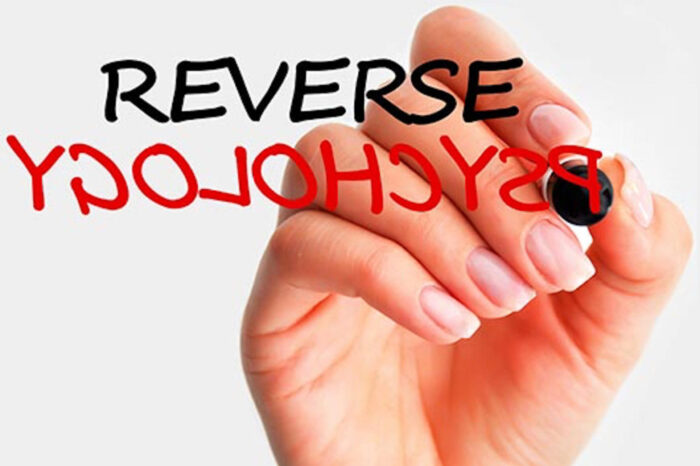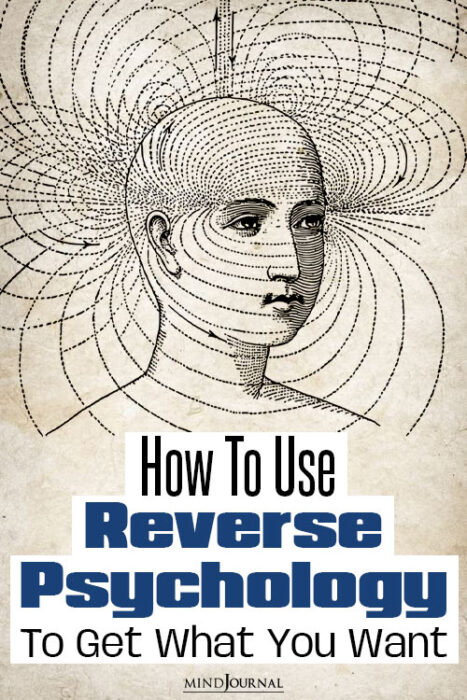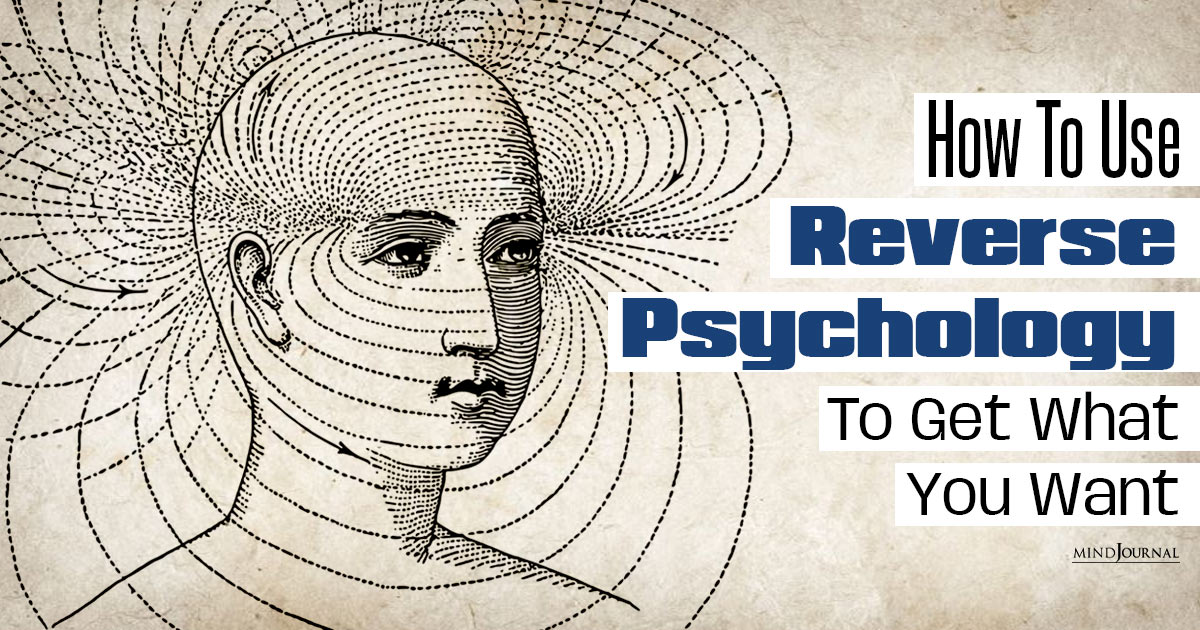Sometimes things go exactly the way you want them to. Other times, not so much. Especially when you are dealing with people. So how can you turn things in your favor without being manipulative? Two words: reverse psychology. But what does reverse psychology mean?
Sometimes, the conventional methods of persuasion fail, leaving us perplexed and frustrated. Reverse psychology is a fascinating technique that can turn the tables and unlock hidden paths to influence and persuasion. Its positive strategy for positive results.
Let’s dive deep into exploring its meaning, and understanding how does reverse psychology work and even explore how to use reverse psychology on a narcissist. So, buckle up and get ready to uncover the captivating world of reverse psychology.
What Does Reverse Psychology Mean?

Reverse psychology is a subtle yet powerful psychological technique that involves persuading someone to do or believe something by suggesting the opposite of what you truly desire.
It capitalizes on the natural human tendency to resist direct commands or suggestions, often leading individuals to adopt a contrary attitude or behavior. By skillfully employing reverse psychology, you can nudge others to make choices that align with your intentions, without triggering their defenses or resistance.
Related: 10 Powerful Psychology Tricks You Can Use To Influence People
Still wondering what does reverse psychology mean? Well, have you ever felt like someone’s trying to box you in? According to reactance theory, we hate feeling restricted, so we rebel.
When we feel that there is a threat to our sense of freedom, we tend to become uncomfortable which drives us to re-establish our sense of freedom. “Such reactance motivation should increase the likelihood of nonconformity to influence attempts,” explain researchers.
In such cases, the influencer might find success by “misrepresenting his or her true desires”. The influencer individual can pretend to want something else, banking on the target’s tendency to oppose, leading the target to adopt the approach the influencer secretly desires.
For instance, let’s imagine you have a close friend who is consistently and habitually a disagreeable person. They are always up for a debate, constantly seeking control.
Now let’s say you and your friend are choosing between two movies that you want to watch over the weekend. If your friend usually goes along with your ideas, suggesting your preferred movie directly should work well. But in this case, being straightforward might not work as your friend is generally a disagreeable person. This is where you can use reverse psychology to make your friend more agreeable.
So instead of directly suggesting your preferred movie to your friend, try suggesting the opposite of what you want. For example, if you prefer Movie A, propose Movie B. When your friend argues for Movie A, pretend to resist before agreeing, secretly getting what you wanted all along. So, if you expect your friend to disagree, try the opposite tactic for better results.
Basically, if you expect someone to agree, just be straightforward. But if you think they’ll disagree, try a more indirect and subtle approach instead – this is the game of reverse psychology.
Now that we know what does reverse psychology mean, let’s focus on how does reverse psychology work and then we’ll delve into some examples of reverse psychology to gain a deeper understanding of the concept.
Related: Challenging Your Partner’s Beliefs: A Guide To Using Reverse Psychology In A Relationship
How Does Reverse Psychology Work?
To grasp the inner workings of reverse psychology, let’s consider a simple example. Imagine you have a child who refuses to eat their vegetables. Using reverse psychology, instead of insisting they eat the veggies, you might say, “Oh, you definitely shouldn’t eat those delicious green beans; they’re only for grown-ups.”
This reverse suggestion triggers the child’s desire for autonomy and defiance, making them more likely to eat the vegetables to prove you wrong.
Reverse psychology works by utilizing the psychological principles of reactance and the desire for control. When confronted with a direct command or suggestion, individuals often feel their freedom is being restricted, leading to resistance.
However, by presenting an opposing viewpoint, reverse psychology taps into their innate need for autonomy, causing them to consider the alternative action as a means of regaining control. This is the answer to how does reverse psychology work.
Examples of Reverse Psychology
To better understand what does reverse psychology mean, let us consider the following examples of reverse psychology –
1. Bedtime Battles
Parents often struggle with getting their children to go to bed on time. Instead of pleading with a child to sleep, a parent might say, “I don’t think you’ll be able to fall asleep before 9 p.m., it’s too early for you.”
The child, driven by their desire for independence and proving the parent wrong, may decide to go to bed earlier.
Related: How To Win Your Ex Back For Good (Using Reverse Psychology)
2. Relationship Reversal
Imagine you’re in a relationship where your partner seems distant. Instead of begging for attention, you might say, “I think we should spend some time apart. It seems like we need space.”
This reverse psychology technique may trigger your partner’s fear of losing you, prompting them to seek closeness and rekindle the relationship. This is perhaps one of the most common examples of reverse psychology.
3. The Job Offer Gambit
During a job interview, the employer might say, “We have several other highly qualified candidates for this position. It’s going to be a tough decision.”
This reverse psychology approach activates the candidate’s desire to stand out from the competition, potentially increasing their eagerness to secure the job.
Now that we have understood “what does reverse psychology mean?”, let us find out how to use reverse psychology on a narcissist in a positive way, so that we can create a better life for ourselves and others.

How to Use Reverse Psychology on a Narcissist
Dealing with narcissistic individuals can be particularly challenging due to their inflated sense of self-importance and resistance to criticism. However, reverse psychology can be employed tactfully to navigate these complex dynamics:
1. Appeal to Their Desire for Admiration
Narcissists have an insatiable need for admiration and validation. To employ reverse psychology effectively, strategically appeal to their desire for praise and recognition.
Instead of directly criticizing their behavior, focus on highlighting their positive qualities or actions that align with the desired outcome. By praising their abilities or emphasizing how impressed others would be if they achieved a particular goal, you can trigger their ego and motivate them to prove themselves worthy of admiration.
2 Create a Sense of Scarcity or Challenge
Narcissists thrive on competition and the feeling of being special or superior. To tap into this aspect, use reverse psychology by presenting the desired outcome as scarce or challenging to obtain.
Related: 13 Useful Psychology Tricks That Will Make Your Life Easier
For example, if you want a narcissistic friend to attend an event, you could say, “I’m not sure if you’d be interested in attending this exclusive event. It’s only for a select few who truly appreciate fine art and culture.”
By implying that the event is exclusive and limited to a select few, you trigger their desire for special treatment and the fear of missing out. This approach may increase their motivation to attend the event to maintain their perceived superiority.
3. Use the “Reverse Criticism” Technique
Narcissists often struggle with receiving criticism and tend to become defensive or dismissive. Instead of offering direct criticism, which may trigger their resistance, utilize the “reverse criticism” technique.
Frame your concerns or suggestions as if they were about yourself or someone else. For instance, if you want a narcissistic colleague to be more punctual, you could say, “I’ve noticed that people who arrive on time are often seen as more reliable and respected in the workplace. It’s interesting how being punctual can shape others’ perceptions.”
By presenting the issue indirectly and making it relatable, you can plant the idea without directly challenging their ego.
Remember, when using reverse psychology on a narcissist, it’s essential to strike a balance and consider the potential impact on their mental well-being. While this technique can be effective in certain situations, it’s crucial to approach it with empathy and respect for the other person’s boundaries.
Use it as a tool for fostering positive change and growth, rather than manipulating or exploiting their vulnerabilities. This is an excellent tip on how to use reverse psychology on a narcissist.
Takeaway
So what does reverse psychology mean? Reverse psychology is a fascinating tool that enables us to influence others by skillfully suggesting the opposite of what we desire.
By leveraging human psychology’s intricate aspects, such as reactance and the need for control, we can gently guide individuals towards the choices we wish them to make. Whether it’s encouraging children to eat their vegetables or navigating complex relationships, reverse psychology can be a valuable addition to your interpersonal toolkit.
However, remember to use this technique responsibly and ethically, always considering the well-being and autonomy of others.
Related: Priming Psychology: How To Influence Someone’s Thoughts and Behaviors
Frequently Asked Questions (FAQs):
Is reverse psychology manipulative?
While reverse psychology can sometimes be perceived as manipulative, its ethicality depends on the intentions behind its use and the context in which it’s employed.
Is reverse psychology toxic?
Although reverse psychology itself isn’t inherently toxic, its misuse or overuse can lead to negative consequences, such as eroding trust and damaging relationships.
Is reverse psychology gaslighting?
Reverse psychology isn’t necessarily gaslighting, but it can be manipulative if used to undermine someone’s reality.









Leave a Reply
You must be logged in to post a comment.